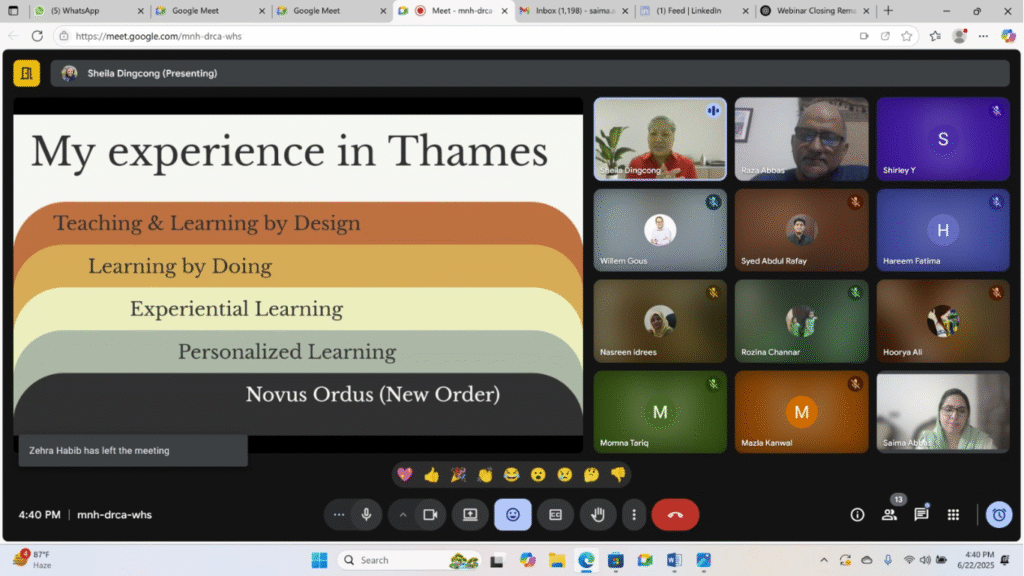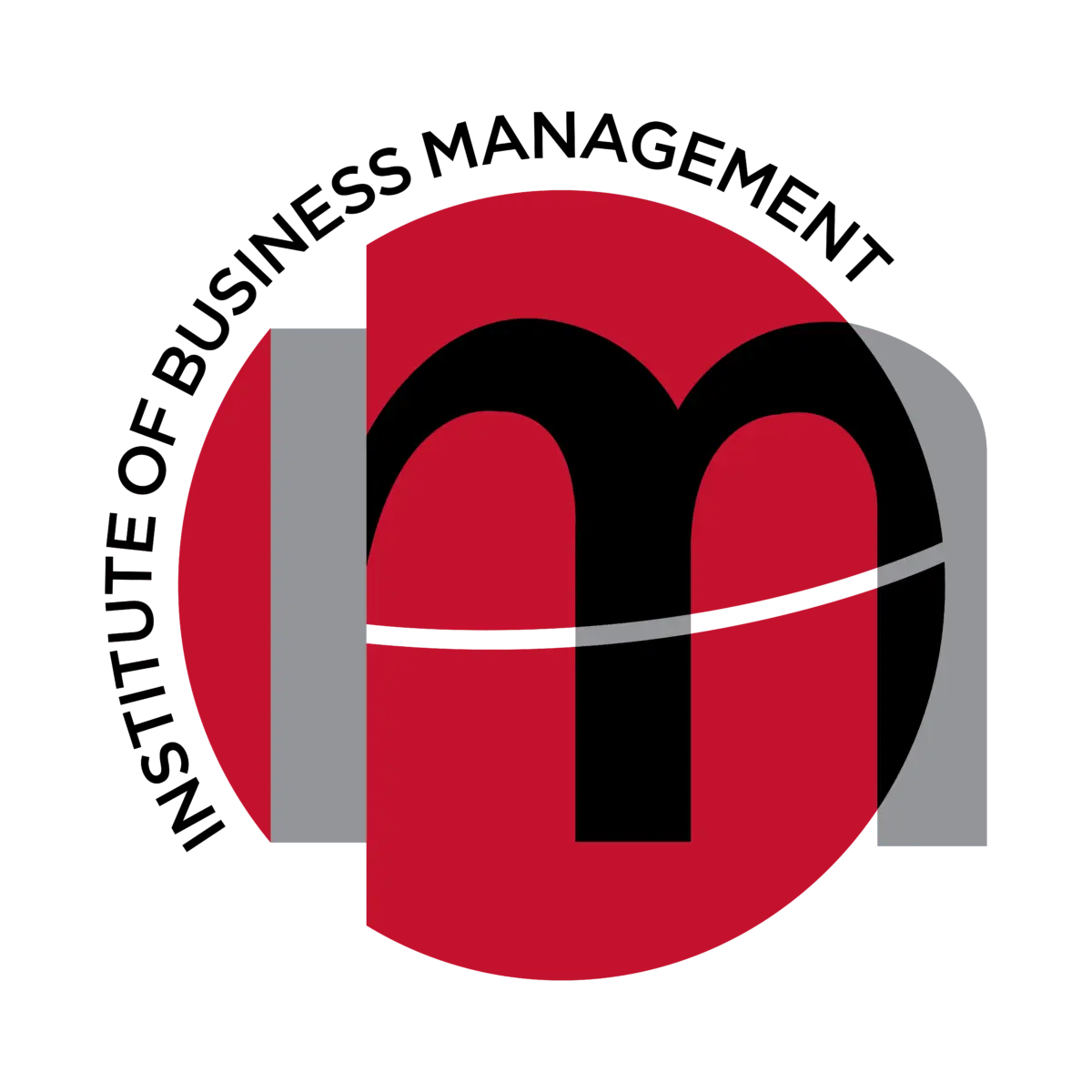
The UNESCO Entrepreneurship Education Network (EE-Net) Pakistan Chapter, appointed by the Institute of Business Management (IoBM), recently organized the 4th international webinar on “Design Thinking & Assessment” in collaboration with an Expert of the National Curriculum Council. The session was co-moderated by Mr. Raza Abbas, Focal Person of the UNESCO EE-Net Pakistan Chapter and Ms. Saima Abbas, Expert at the National Curriculum Council (NCC). The panel featured the following esteemed international experts:
Professor Sheila Dingcong representing Phillpines former Dean and currently the Executive Director for External Affairs of Thames International School and the UNESCO Entrepreneurship Education Network Philippine National Chapter Vice-Chair and Professor Shirley Yeung – Head School Practice Gratia, Christian UNPRME Adv. Signatory Institute – Associate VP. UNESCO Hong Kong Association.
Ms. Sheila Dingcong representing Hong Kong, presented an inspiring talk on the vital role of assessments in entrepreneurship education. Her key points highlighted the value of authentic assessments in measuring the learner’s knowledge acquisition, skills development, and positive behavior change. From the teacher’s perspective, assessments provide the indicators of the meaningful impact of an educator’s work. As an academic leader, Sheila shared their best practices at Thames International which are experimentations on creating impactful learning experiences for their students using the Design Thinking model. These include the intentional designing of the syllabus with their unique 357 Learning Model Canvas, replacing final exams with a project expo exhibition of student work, expanding their learning space beyond the campus with their required study tours for experiential learning, providing personalized learning through flexible modalities, and integrating ESD (Education for Sustainable Development) in the curriculum with each student choosing a social advocacy to work on through college. Without totally negating the beneficial use of traditional assessment tools, Sheila underscored the importance of formative assessments throughout the learning journey, scaffolding each student output towards a final product that encapsulates what the student has learned across the different courses. Entrepreneurship education starts with changing mindsets that can help students define problems and ideate solutions which are value-laden,
Professor Shirley as a working group member of UNESCO EE Network around 10 years shared the 5 steps of applying Design Thinking: Empathy, Define, Ideate, Prototype, Validation into our Green Entrepreneurial Education Project with Upcycled Chinese Paintings Apparal products in Genesis-one.co, sdgx Carbon and HKMODELCAMP platform to visualizing pioneer actions first impacts, e.g. UNSURYA University and IPMI, Jarkata on sustainable Halal fashion, Crossover with Minor Chores, US, Hanson Robotics, Renowned Artist Foo Sai Heng..etc.
Key Outcome: We believe it’s time to revisit Curriculum Design, Assessments with Relevancy in Learning Outcomes!

